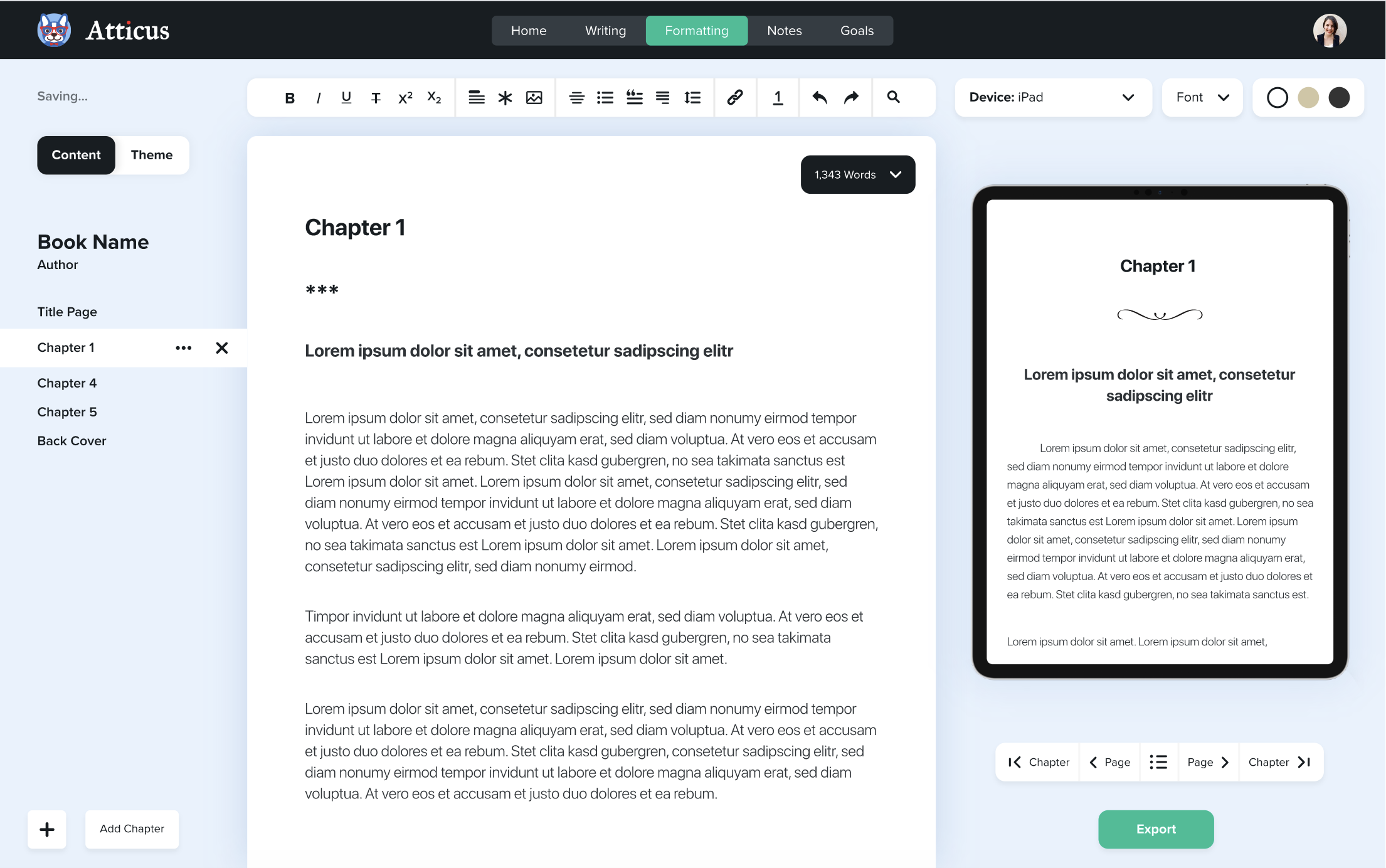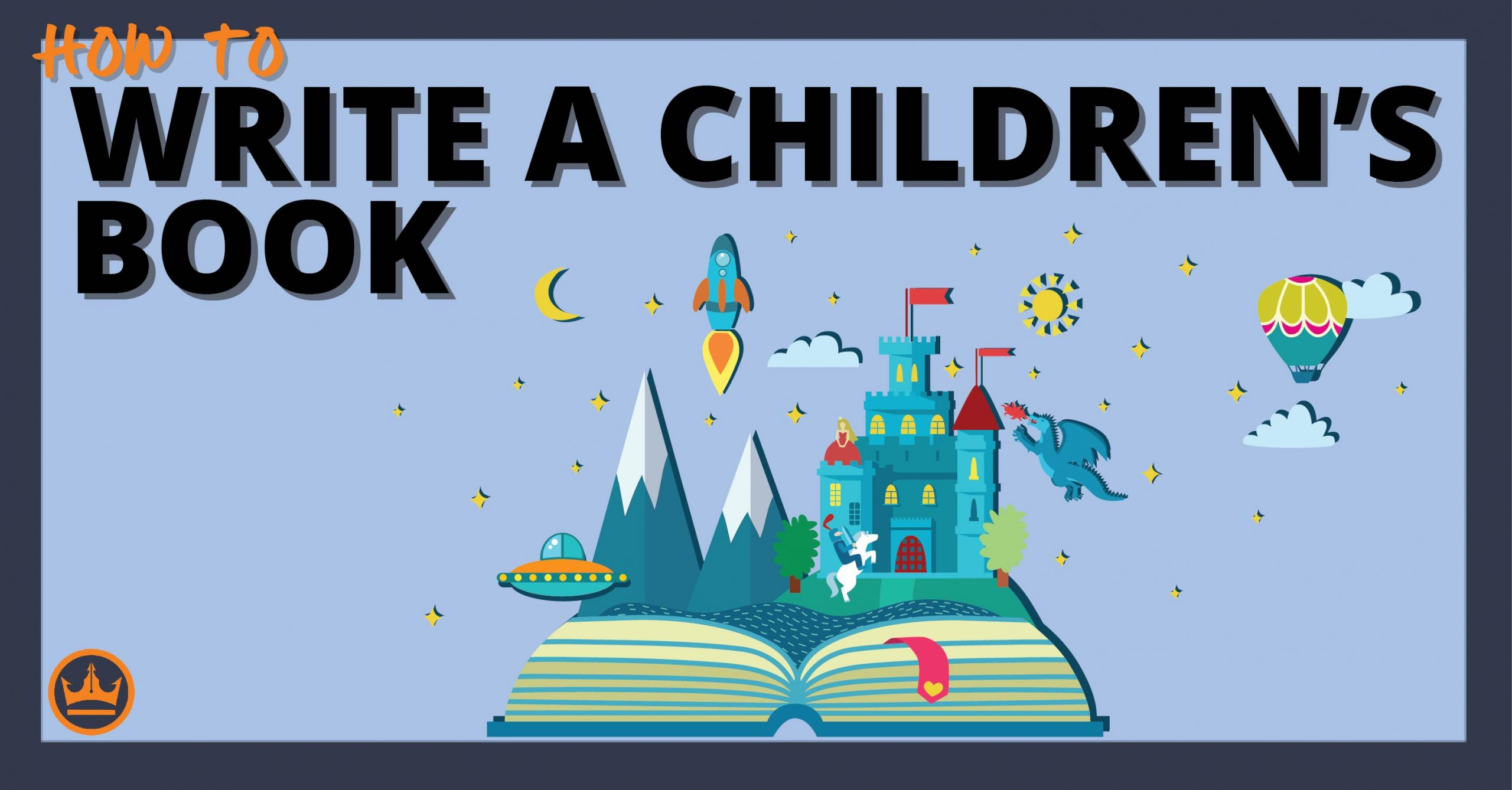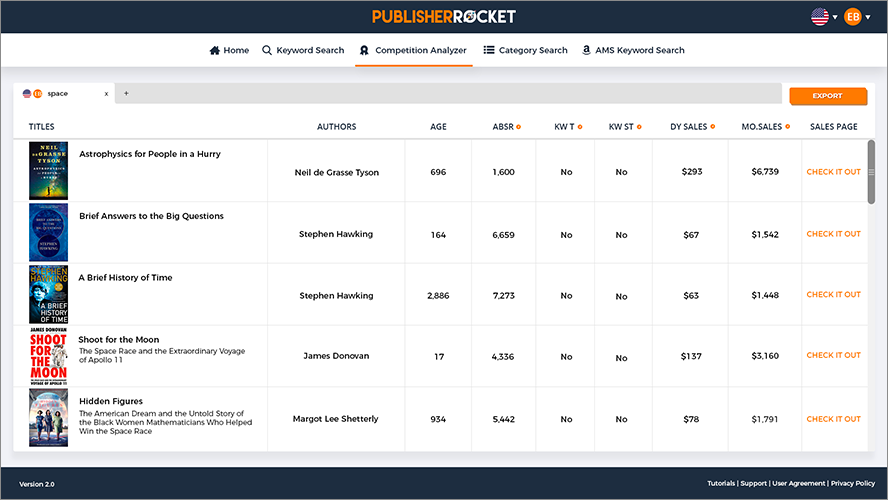You sit down to write… and nothing comes out.
The cursor blinks. The idea you were so excited about an hour ago suddenly feels flimsy. Maybe you stare at the page. Maybe you find yourself organizing your desk or checking email again. Either way, the result is the same:
You’re not writing.
For some, writer’s block is a rare annoyance. For others, it can derail entire projects. I’ve talked to authors who’ve gone months — even years — without making real progress, all because they didn’t know how to break through that stuck feeling.
And the worst part? Most of the advice out there doesn’t help.
“Just take a walk.”
“Wait for inspiration.”
“Push through it.”
If you’ve ever felt blocked, you already know how unhelpful those suggestions can be. Because writer’s block isn’t just a matter of discipline or motivation. It’s usually the result of something deeper — fear, perfectionism, procrastination, or pressure — showing up in disguise.
That’s what we’re going to tackle here.
In this guide, I’ll walk you through:
- What writer’s block really is (and isn’t)
- The four core reasons it happens
- And 28 proven ways to get your momentum back — whether you’re writing your first book or your fiftieth
Let’s get to it.
Table of contents
What Is Writer’s Block?
Writer’s block is the experience of wanting to write but feeling unable to. You might have the time, the tools, and the idea — but no words come. It’s not laziness. It’s a creative block, often caused by fear, perfectionism, or overwhelm.
Everyone who writes eventually runs into it.
Some call it procrastination. Others call it burnout. But at its core, writer’s block is your brain throwing up a roadblock when you try to create — and the longer it lingers, the harder it feels to push through.
The good news? It’s beatable. But only if you understand what’s really causing it.
Let’s break down the four core reasons writers get blocked.
The 4 Core Causes of Writer’s Block
Most writing advice treats writer’s block like a surface-level problem.
Tips like “just write through it” or “try a new prompt” might work — for a day or two. But if you don’t understand why you’re stuck, the block usually comes right back.
Most writing advice treats writer’s block like a surface-level problem.
In my experience — both personally and working with thousands of authors — writer’s block usually isn’t about the writing at all. It’s about what’s happening before you ever sit down at the keyboard.
Here are the four forces that most often stop writers in their tracks:
1. The Pressure to Get It Right the First Time
One of the most common blocks I see? Writers who can’t move forward because they’re trying to write a perfect first draft.
They write a sentence… delete it.
Try a new opening… delete that too.
Before long, they’ve spent two hours rewriting the same paragraph — or worse, avoiding the page altogether.
This isn’t just a perfectionism problem. It’s a pressure problem. The more you expect brilliance from yourself on draft one, the harder it becomes to let the words flow.
How to Fix it: Give yourself permission to write something “ugly” first. Don’t aim for publishable. Aim for progress. Draft messy, edit later — that’s how real books get written.
2. The Myth of Needing to Feel Inspired
A lot of writers think they need to feel creative before they can start writing. They wait for the spark. They chase the right conditions. They tell themselves they’ll write tomorrow — once the mood strikes.
But inspiration isn’t a prerequisite. It’s a byproduct.
Professionals know this. They write on schedule — not because they always feel ready, but because showing up consistently is what unlocks ideas in the first place.
How to Fix it: Stop treating writing like a feeling. Treat it like a habit. You don’t need to be “in the zone” — you just need to get the words moving. Clarity follows action, not the other way around.
3. Mental Overload (Too Many Tabs Open)
Sometimes the issue isn’t emotional — it’s cognitive. You sit down to write, but your mind’s juggling too much: unfinished tasks, open browser tabs, a dozen other to-dos.
Even if you're motivated, you can’t focus.
This kind of clutter creates creative static. It makes your brain feel foggy. And when your mental RAM is full, there’s no room left to write.
How to Fix it: Offload everything. Close your tabs. Jot down your mental to-do list. Then block off just 20–30 minutes for focused writing — nothing else. You’ll be surprised how quickly clarity returns once you stop multitasking.
4. Unclear Direction
Sometimes, writer’s block happens because you don’t actually know what you’re trying to say.
You might have a rough idea — a plot, a topic, a message — but no clear next step. So you stall. You circle. You rewrite the same part over and over, hoping the direction will reveal itself.
But writing doesn’t like vagueness. If your idea’s blurry, your brain hesitates to commit words to the page.
How to Fix it: Zoom in. Don’t ask “How do I write this chapter?” Ask “What’s the next thing I need to say?” One sentence. One beat. One idea at a time. That’s how you go from stuck to steady progress.
28 Ways to Beat Writer’s Block (That Actually Work)
Now that you know what’s really behind writer’s block, it’s time to break through it — for good.
Below are 28 strategies that have helped thousands of writers get unstuck. You don’t need to use all of them. But find two or three that resonate, try them consistently, and you’ll be back in motion faster than you think.
🧠 MINDSET RESET
1. Build a Daily Writing Habit
The best way to avoid writer’s block is to stop giving it room to grow. When writing becomes part of your routine — like brushing your teeth or making coffee — it loses its power to intimidate you. You don’t have to write every day, but consistency matters.
2. Lower the Stakes
Most blocks come from putting too much pressure on what you’re trying to write. Instead, lower the bar. Tell yourself you’re just writing a draft you don’t have to show anyone. That mental shift creates space for progress.
3. Stop Writing for “Them”
When you write with an imaginary audience judging every word, you’ll stall out fast. Forget your readers for now. Write for yourself, or write for one person you trust. You can clean it up later.
4. Ditch the Inspiration Myth
If you only write when you feel like it, you won’t write much. Don’t wait for perfect conditions. Inspiration tends to show up after you start, not before.
5. Change Your Story
Try this mental flip: What if writer’s block isn’t a problem, but a signal? A sign you need to change your approach, not your ability. That mindset shift alone can dissolve half the tension.
✍️ WRITING TACTICS THAT WORK
6. Free Write the Ugly Version
Set a timer for 10–20 minutes. Write whatever comes to mind — no backspacing, no editing. Your only job is to keep your fingers moving. This clears the pipes and kills the pressure to be perfect.
7. Use a Writing Prompt
If you’re stuck on your main project, try a low-stakes warm-up. Writing prompts help you reconnect with your creative side. Reddit’s r/WritingPrompts is a great place to find one.
8. Jump Ahead in the Story
Can’t figure out what happens next? Skip to a scene you do know. Write the ending. Write the argument. Write the twist. You can always fill in the blanks later.
9. Change Projects (Temporarily)
Sometimes the problem isn’t you — it’s the story. Shift gears for a bit. Work on a different idea, write a new story, or explore a character backstory. New words in any form can unstick your brain.
10. Kill a Character (as an exercise)
Try writing a scene where one of your main characters dies — even if you don’t plan to use it. The emotion and surprise it generates can reignite your creative momentum.
11. Use Dictation
Talking feels different than typing. Try narrating your ideas out loud — into your phone, a voice memo, or dictation software. You may find the words flow faster that way.
12. Copy a Favorite Passage by Hand
Grab a book you love and hand-copy a few paragraphs. This can reconnect you with language, rhythm, and flow — and activate the writing part of your brain in a low-pressure way.
13. Brainstorm Without Rules
Set a timer for 10 minutes and write down every idea, no matter how weird or bad. Don’t organize. Don’t filter. Just dump. Often, your best ideas are hiding beneath the ones you’d normally skip.
14. Start with the Last Line
Try this: Write the last sentence of your chapter or scene first. Then reverse-engineer your way back to it. It gives your brain something to aim at.
🧰 TOOLS TO MAKE IT EASIER
15. Try Gamified Writing Apps
Apps like Write or Die, 4thewords, or Written? Kitten! use rewards and penalties to turn writing into a game. If you’re deadline-driven or need external motivation, these can be surprisingly effective.
16. Use a Mind Mapping Tool
Tools like Miro or XMind help you visualize story structure or idea connections. If you’re stuck because your thoughts feel jumbled, mind mapping can give you clarity.
17. Organize Notes in a Writing App
Writing apps like Evernote, Scrivener, or Storyist help you store inspiration, manage outlines, and track your ideas in one place. Less chaos = fewer blocks.
18. Use Atticus for Focused Drafting
Atticus helps you stay focused on writing by stripping away distractions and giving you an intuitive place to draft. (And yes, I might be a little biased — but that’s because I built it to solve this exact problem.)
Formatting Has Never Been Easier
Write and format professional books with ease. Never before has creating formatted books been easier.
Click here to see it in action19. Block the Noise
Use a distraction-blocking app like Freedom or Cold Turkey Writer. Set a writing session, shut off the noise, and make it harder to bail when the work gets tough.
🌍 PHYSICAL & ENVIRONMENTAL HACKS
20. Take a Walk
It’s not just feel-good advice — it’s science. A 2014 Stanford study found that walking can boost creativity by up to 60%. If you’re stuck, get your body moving.
21. Change Locations
Your brain associates certain places with certain tasks. If your usual spot isn’t working, try a new one — a different room, a coffee shop, even outside.
22. Do 10 Pushups (Seriously)
Sometimes your brain just needs a jolt. A quick burst of movement — pushups, jumping jacks, squats — can boost circulation and wake up your mind.
23. Add Audio Cues
Try music, white noise, or even ASMR. Apps like Brain.fm use scientifically-designed audio to help you focus and get into flow faster.
24. Get a Coffee (or Tea) Break
Don’t underestimate a well-timed caffeine bump. The act of stepping away to make a drink can create just enough distance to reset your focus.
🤝 ACCOUNTABILITY + SUPPORT
25. Talk It Out
Say the problem out loud — to a friend, a fellow writer, or even to yourself. Explaining what’s wrong helps you spot the real issue. Sometimes clarity shows up the moment you stop trying to write and start trying to think out loud.
26. Join a Writing Group
Sometimes the best way to stay unstuck is to write alongside others. Whether it’s a local group, a Facebook community, or an online cohort, the shared momentum helps. Even knowing someone else is writing at the same time can nudge you back into the zone.
27. Set a Micro-Deadline
Give yourself a tiny, non-scary deadline: 100 words in 10 minutes. One paragraph before lunch. A scene by the end of the day. Better yet, tell someone else you’re going to do it. Accountability adds urgency.
28. Get Feedback Sooner
Many writers stall because they’re unsure if what they’re writing is “working.” Instead of waiting until the end to get feedback, share a rough excerpt early. A small dose of encouragement — or a quick course correction — can get you moving again.
What Famous Writers Say About Writer’s Block
Even the greats have struggled to get the words flowing.
Here’s what bestselling authors, literary legends, and working pros have said about writer’s block — and how they push through it.
“You can always edit a bad page. You can’t edit a blank page.”
— Jodi Picoult
One of the most useful reminders there is. If you're stuck, stop aiming for brilliance. Aim for something you can revise later.
“Amateurs sit and wait for inspiration; the rest of us get up and go to work.”
— Stephen King
Inspiration is great when it shows up. But if you want to finish anything, consistency beats waiting.
“If I waited for perfection, I’d never write a word.”
— Margaret Atwood
Nobody writes a perfect first draft. The key is being willing to write an imperfect one anyway.
“My cure for writer’s block? The necessity of earning a living.”
— James Ellroy
Blunt but relatable. Sometimes a looming deadline is the best motivator we have.
“Plumbers don’t get plumber’s block. Why should writers be the only profession that gives a special name to the difficulty of working?”
— Phillip Pullman
A great reminder that writing is still a job — and most jobs get done whether we feel like it or not.
“You can’t wait for inspiration. You have to go after it with a club.”
— Jack London
Writing isn’t passive. It’s something you chase, even when the words are hiding.
“Some days all I do is stare at the wall. That can be productive, too.”
— Suzanne Collins
Not every writing day means hitting a word count. Sometimes your brain is solving story problems behind the scenes.
“The best writing is borne of humility. The great stuff comes to life in those moments when writers become acutely aware of the limitations of their skills.”
— Dean Koontz
Trying to write something great is hard. But knowing your limits — and writing anyway — is how you grow.
“I don’t believe in writer’s block. Just pick up a pen and physically write.”
— Natalie Goldberg
Motion creates momentum. Even scribbling a sentence or two can break the block wide open.
“Close the door. Write with no one looking over your shoulder.”
— Barbara Kingsolver
When you block out the imaginary critics, the writing becomes easier — and more honest.
You’re Not Broken. You’re Blocked.
Writer’s block doesn’t mean you’re not a real writer.
It doesn’t mean your idea isn’t good, or that you’ve lost your touch, or that you’re not cut out for this.
It just means something’s getting in the way — and now you know what to do about it.
Whether it’s perfectionism, mental clutter, lack of direction, or the pressure to “get it right,” every cause has a counter move. And you don’t need to wait until you feel motivated. You just need to try something new.
Pick one strategy from this list and test it today. Not tomorrow. Not when the mood feels right. Today.
Even five minutes is enough to remind yourself: the words are still there. You just have to give them a way out.








